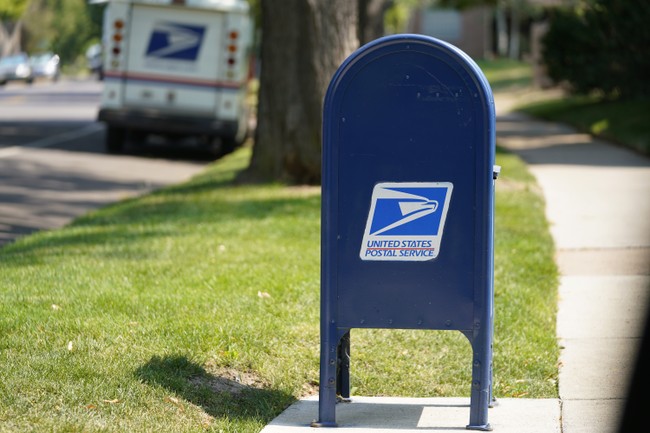
While the holiday season ramps up with increased mail and deliveries, President-elect Donald Trump is setting his sights on reshaping the U.S. Postal Service (USPS) there people with knowledge of the matter told the Washington Post.
Advertisement
Trump has raised the idea of privatizing the Postal Service in talks with Howard Lutnick, his pick for commerce secretary and co-chair of his presidential transition team. These talks took place at Mar-a-Lago, where Trump has been meeting with his transition officials in recent weeks.
Financial losses are the top reason Trump might send the Postal Service packing, as USPS has long been a target for cost-cutting. When informed of the Postal Service’s annual financial losses of $9.5 billion for the fiscal year 2024, Trump reportedly stated that the government should not continue subsidizing the agency, according to sources who spoke on the condition of anonymity.
Additionally, individuals set to work on the “Department of Government Efficiency” (DOGE) a nongovernmental panel led by tech entrepreneurs Elon Musk and Vivek Ramaswamy have held initial discussions about changes to the Postal Service, according to two sources familiar with the matter, who spoke to The Post.
The idea of privatizing USPS would likely face strong opposition from representatives of rural America. The Postal Service’s “universal service obligation” requires that mail and parcels be delivered to every corner of the country, regardless of distance or profitability. This makes it especially crucial in rural areas, where private carriers may be unwilling or unable to provide service due to the remoteness and low population density. Federal officials from Alaska frequently invite postal executives to the state to witness firsthand how essential the Postal Service is to its economy.
Advertisement
Read More:
Postmaster General Has Meltdown, Throws Tantrum in Congressional Hearing
The Postal Service Plays a Larger Role in Government Spying Than You Might Think
In April 2022, President Joe Biden signed the Postal Service Reform Act into law. The bipartisan bill aimed to address the long-standing financial challenges faced by the Postal Service and ensure its continued six-day-a week-operation.
A spokesperson for the Postal Service stated that the agency’s 10-year modernization plan has resulted in a reduction of 45 million work hours over the past three years and a $2 billion decrease in transportation costs. The agency is also seeking regulatory approval to adjust its mail processing and delivery schedules to better match private-sector practices.
The statement said:
The United States Postal Service is already implementing an initiative to ensure that we continue to provide high-quality service to every delivery address in the nation at least six days a week, in a manner that is both efficient and financially sustainable, as required by law.
Advertisement

